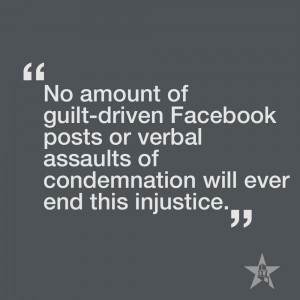In a recent interview with a senior at Stanford University, a key issue in the continuation of violence against women was revealed for the world to see.
“Some men feel that too much responsibility for preventing sexual assault has been put on their shoulders,” said the student, whose name does not deserve to be printed. “While everyone condemns sexual assault, there seems to be an assumption among female students that they shouldn’t have to protect themselves by avoiding drunkenness and other risky behaviors. Do I deserve to have my bike stolen if I leave it unlocked on the quad? We have to encourage people not to take on undue risk.” (Bloomberg)
 First off, this opinion should not be generalized as the identifiable feeling of all collegiate aged men about women. Seriously, this guy compares a woman’s sexual privacy to a bike on the quad – just violate it if you feel like it! I think that if this man is the best an Ivy-League school has to offer – we all have reason to seriously fear for the future of this country. Not all men (whilst conceding there certainly are some) are sexist, chauvinistic, rude, or the other usual condemnations associated with our sex.
First off, this opinion should not be generalized as the identifiable feeling of all collegiate aged men about women. Seriously, this guy compares a woman’s sexual privacy to a bike on the quad – just violate it if you feel like it! I think that if this man is the best an Ivy-League school has to offer – we all have reason to seriously fear for the future of this country. Not all men (whilst conceding there certainly are some) are sexist, chauvinistic, rude, or the other usual condemnations associated with our sex.
However, the statement from this particular student does highlight one of the key issues at large in the battle to stop violence against women – we (men) are still failing to acknowledge our role in the situation at large. Frat houses, for example, are notorious for their high statistics regarding rape and sexual assault. Yet they, and often their respective university presidents, fail to assign responsibility to the men, choosing instead to back up this ridiculous belief that women need to “just not go to the parties then.” Along with these foolish ideas come phrases like: boys will be boys, men shouldn’t be expected to control themselves, she shouldn’t have been wearing that, etc. All of which is trash.
It has been said a million times before and ignored – victims of sexual assault and rape should never be blamed for what happened to them. I am a man and I am saying this, voicing my support for the reevaluation and reshaping of what it means to embrace masculinity in a modern culture for the sake of changing the status quo.
I do not think that men are designed in any way that could result in them being deemed as mindless brutes or animals.
I do not think that masculinity calls us to embody a sense of superiority over women.
I do not think that the responsibility to end violence against women and lead this world into a new realm of equality lies solely in the hands of women. We have a role to play as well!
So, men at Houghton, I challenge you – be respectful to the women you see everyday. Don’t catcall; don’t stare; set an example for your friends and be a role model at home for your brothers or friends. When a friend makes a sexist joke or comments about girls’ clothes or bodily features – shut him (or her) up! For those of you in relationships – think seriously about how you treat your girlfriends, fiancés, or wives. Do you actually believe that you have unfettered physical rights to her and can call upon them whenever the desire arises? You must be joking! What does that say about her dignity as a human being and her right to be respected? Try to introduce (if you’re in an existing relationship), or commit beforehand to, conversations in which you both agree on mutually self-giving expressions of affection. No-means-no implies the possibility for damaging action before actual communication. Yes-means-yes (from both people) implies a shift in perspective, a conversation with tangible results that ranks respect for one another above personal desires.
Perhaps, in the age of one-night stands, online hookups, and 24-7 access to porn, masculinity has been too often characterized as a 6’2, macho and muscular sex machine who sleeps with women regardless of consequences and wears a phallic symbol on his sleeve (a.k.a. James Bond). If so, then now more than ever there must be a generation of men who spit in the face of Hollywood and strive to be something new. At the end of the day, you and you alone determine how you will act as a man in your friendships and relationships. I challenge you to set an example that emphasizes equality and embraces a new perspective. You can do it.



